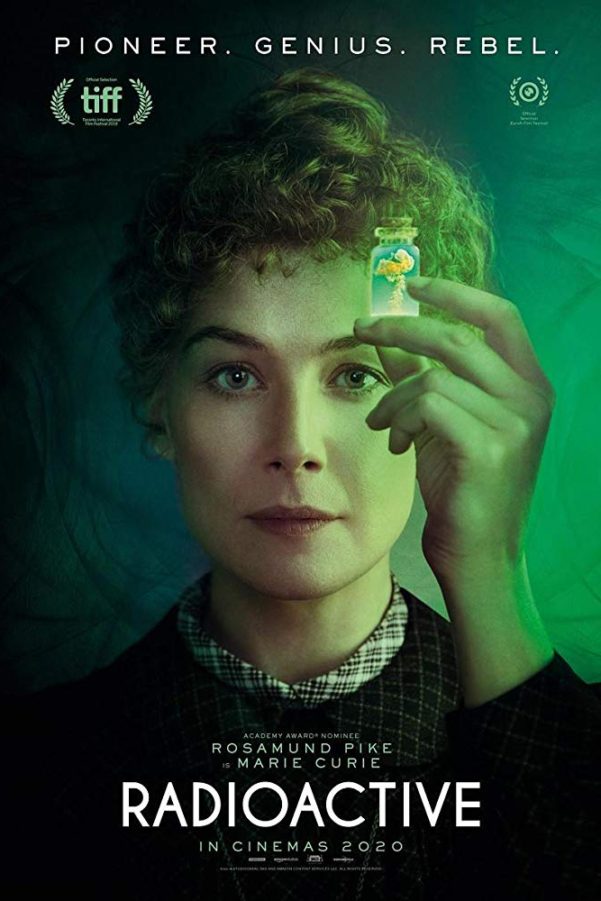Radioactive

Based on a graphic novel of the same name, Radioactive relates the story of famed scientist Marie Curie and attempts to give an idea of the magnitude of her discoveries while also revealing something of her private life. Directed by Marjane Satrapi (of Persepolis fame), the biopic uses flashbacks and flash-forwards to switch between the Nobel winner’s personal story and reminders of the disasters that atomic energy research led to.
The film begins with Curie (Rosamund Pike) moments before her death in a Paris hospital, reliving the most salient events of her life, starting with the day she first met her lifelong work and romantic partner, Pierre Curie. The audience is then taken through her scientific journey.
A determined young Polish researcher standing her ground among male colleagues, she is absorbed by her seminal work on radiation. She then marries and begins to collaborate with Pierre, is co-nominated for a Nobel Prize in Physics (only after her husband insists that she, rather than he, was the leader of the research), and is then nominated for a second Nobel Prize, this time in Chemistry, for discovering radium and polonium. Meanwhile, Marie continues to face many challenges involving limited funding and a constant battle for recognition and acceptance by fellow scientists, as well as French society.
Too often, the film has an educational rather than a dramatic tone. Pike’s intonation is often teacher-like, which does not feel authentic. The most problematic aspect, however, is the screenplay, as the dialogue often seems contrived and lacking originality. The film is too obviously a biography trying to include as many facts as possible, with a few intimate scenes thrown in which end up looking out of place.
While supposedly the movie is a tribute, Curie doesn’t come across as a likeable character, and there is too strong a focus on the negative, albeit unintended, effects of her scientific discoveries on humanity. The flash-forwards depicting the Hiroshima and Chernobyl catastrophes seem to imply that such destruction is the direct and inevitable outcome of her work. This adds to the unfavourable image of the scientist, as she is shown to make one poor choice after the other, maintaining an arrogant and selfish attitude. Perhaps a documentary would have proved a wiser choice to honour her memory.
Undoubtedly an ambitious feature, Radioactive is an unconventional biopic in terms of structure and there is some interesting camera work. Sadly, it is not as intellectually stimulating as the material it handles, and it reduces momentous historical events to superficial scenes and banal exchanges.
Mersa Auda
Radioactive is released nationwide on 20th March 2020.
Watch the trailer for Radioactive here:
























Facebook
Twitter
Instagram
YouTube
RSS